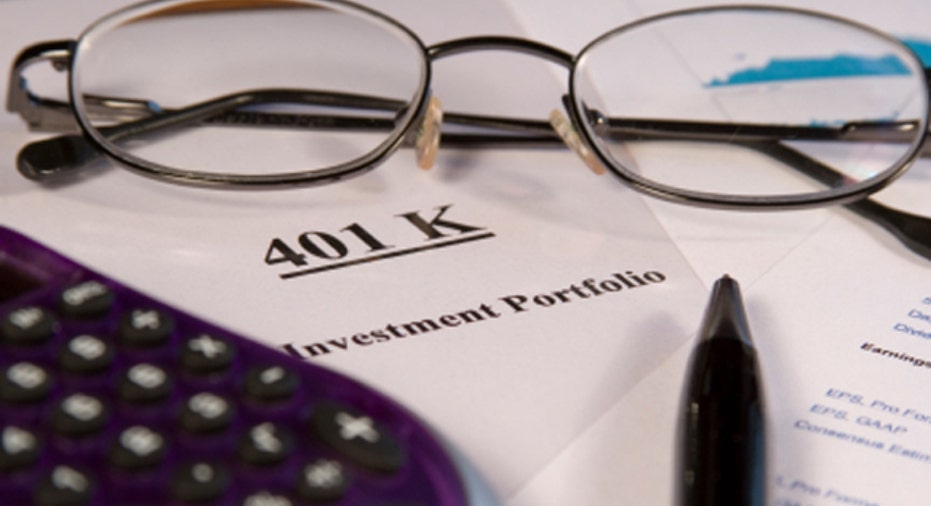Why Pension Funds are Eating Your 401(k)'s Lunch

WASHINGTON – Pension funds - those old guaranteed-benefit retirement plans your grandma might have told you about - outperform those in 401(k) plans year after year, according to new research from consulting company Towers Watson.
In 2011, the last year studied, defined-benefit plans had median returns of 2.74%, while 401(k)s and other defined-contribution plans lost 0.22%. It was the widest margin since the mid-1990s, the company said.
There are many reasons for that, but the primary one, according to Towers Watson, is that by the time 2011 dawned pension funds had loaded up on long-term bonds. Individual 401(k)investors, meanwhile, were stock-heavy or were keeping more money in shorter-term and mixed-term bond funds. Interest rates fell significantly that year, with yields on 10-year Treasuries dropping from 3.36% to 1.89%. That boosted the value of the long bonds sitting in pension fund portfolios.
That doesn't mean individual retirement savers should drop everything and race into the bond market. Nor does it mean that it is in the power of individual savers to match pension fund returns. Pension funds have the benefit of investing for a whole pool of people; they can look longer term and take different risks.
Still, there are lessons to be learned by the two types of retirement plans' disparate returns. Here are some takeaways.
-- The bigger the pool, the better the returns. Pension funds, which invest for large groups of people, can use economies of scale several ways. They can buy investments cheaper and can take bigger and different risks because not everyone in the pool will retire at the same time. While 401(k) participants have to manage money so it is ready for their own retirement date, pension fund managers can always be investing for the long haul, as younger participants balance older ones.
The study also found that bigger pension funds beat smaller ones, and that participants in large 401(k)s did better than participants in small plans.
The takeaway? If you leave a large company, you might want to leave your money in the 401(k) plan instead of rolling it into an individual retirement account, suggests Dave Suchsland, a senior consulting actuary with Towers Watson. You still can't take the kinds of risks a large pension fund might, but you can take advantage of better deals on mutual funds.
-- Fees matter. Companies that offer pension funds tend to pay the cost of the fund and not count those fees when reporting investment returns. But 401(k) administrative expenses are often buried in the fees that participants pay, and that lowers returns. That difference alone gave pension plans a 0.66% annual advantage over the last 17 years, Towers Watson reported. You probably can't talk your boss into paying the whole cost of the 401(k) plan, though that would be nice. But you can at least make sure the funds you pick within your plan are the low-fee alternatives.
-- Don't play follow the leader. In 2009 the stock market started to recover from its earlier implosion, and defined-contribution plans bested pension plans, the study said. (The comparison was made on an asset-weighted basis; bigger plans had heavier weightings in the calculations.) During that year, 401(k) investors stuck with more stocks than did the pension fund managers, who started buying those long bonds. They did that to offset longer-term liabilities, says Suchsland, but it was also a strategy that paid off in 2010 and 2011, as interest rates fell.
Financial experts say we are now nearing the end of a three-decade-long bull market in bonds. It would be a mistake for 401(k) participants to follow pension fund managers into bonds now.
-- Don't rule out the return of pensions. The bottom line of the Towers Watson research is this, in Suchsland's words: "For a plan sponsor to provide a certain level of benefit, it is cheaper to finance through the defined-benefit plan." Even though traditional pensions present more accounting challenges(because they are carried on company balance sheets), Suchsland says he believes some employers who switched to defined-contribution plans in the past few decades may switch back because of pension efficiencies and "workforce issues."
Put another way? Employers may not want to encourage another generation of boomer-like workers who feel like they have to keep working forever because their 401(k) savings are inadequate.



















